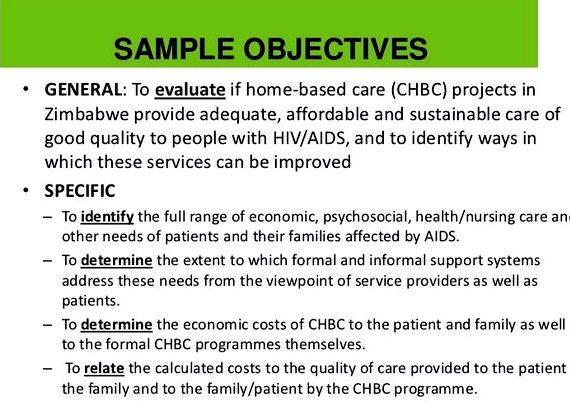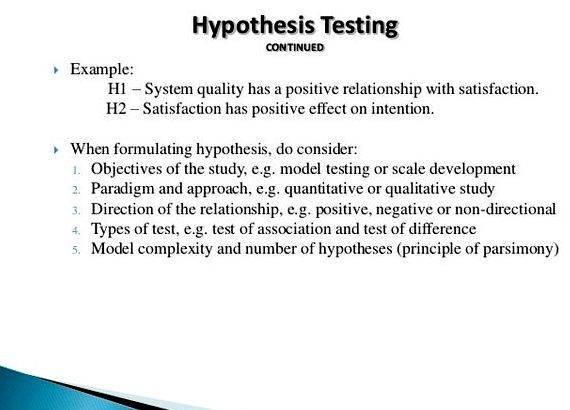Before you begin writing a grant proposal, take some time to map out your research strategy. A good first step is to formulate a research question.
A Research Question is a statement that identifies the phenomenon to be studied. For example, “What resources are helpful to new and minority drug abuse researchers?”
To develop a strong research question from your ideas, you should ask yourself these things:
- Do I know the field and its literature well?
- What are the important research questions in my field?
- What areas need further exploration?
- Could my study fill a gap? Lead to greater understanding?
- Has a great deal of research already been conducted in this topic area?
- Has this study been done before? If so, is there room for improvement?
- Is the timing right for this question to be answered? Is it a hot topic, or is it becoming obsolete?
- Would funding sources be interested?
- If you are proposing a service program, is the target community interested?
- Most importantly, will my study have a significant impact on the field?
A strong research idea should pass the “so what” test. Think about the potential impact of the research you are proposing. What is the benefit of answering your research question? Who will it help (and how)? If you cannot make a definitive statement about the purpose of your research, it is unlikely to be funded.
A research focus should be narrow, not broad-based. For example, “What can be done to prevent substance abuse?” is too large a question to answer. It would be better to begin with a more focused question such as“What is the relationship between specific early childhood experiences and subsequent substance-abusing behaviors?”
A well-thought-out and focused research question leads directly into your hypotheses. What predictions would you make about the phenomenon you are examining? This will be the foundation of your application.
Hypotheses are more specific predictions about the nature and direction of the relationship between two variables. For example, “Those researchers who utilize an online grant writing tutorial will have higher priority scores on their next grant application than those who do not.”
- Give insight into a research question;
- Are testable and measurable by the proposed experiments;
- Spring logically from the experience of the staff;
Normally, no more than three primary hypotheses should be proposed for a research study. A proposal that is hypothesis-driven is more likely to be funded than a “fishing expedition” or a primarily descriptive study.
- Provide a rationale for your hypotheses�where did they come from, and why are they strong?
- Provide alternative possibilities for the hypotheses that could be tested�why did you choose the ones you did over others?
If you have good hypotheses, they will lead into your Specific Aims. Specific aims are the steps you are going to take to test your hypotheses and what you want to accomplish in the course of the grant period. Make sure:
- Your objectives are measurable and highly focused;
- Each hypothesis is matched with a specific aim.
- The aims are feasible, given the time and money you are requesting in the grant.
An example of a specific aim would be “Conduct a rigorous empirical evaluation of the online grant writing tutorial, comparing outcome and process measures from two groups�those with exposure to the tutorial and those without.”
- Why are you doing this research?
- What are the long-term implications?
- What will happen after the grant?
- What other avenues are open to explore?
- What is the ultimate application or use of the research?
These questions all relate to the long-term goal of your research, which should be an important undercurrent of the proposal. Again, they should be a logical extension of the research question, hypotheses, and specific aims.
It is also helpful to have a long-term plan for your own career development. Where would you like to see your career go in the next 5 years? How does the research you are proposing relate to that plan?
Once you've thought through the key elements of your research questions, hypotheses, specific aims, and research design, you have the ingredients for a concept paper. This is an important tool to help you to organize your thoughts, as well as to promote, disseminate, or get feedback on your ideas. A concept paper is a succinct description of your research plan (3 to 5 pages) and can be particularly useful when trying to recruit collaborators or solicit letters of support. It is also useful to send a copy of the concept paper to a NIDA Program Official in the branch or office that covers your topic area.
You will need to decide whether your paper should address your research investigation focus in the form of a research question(s) or through a hypothesis.
Use this Powerpoint to review the characteristics of both forms .
Qualitative approaches to research design generally use questions as their focus. Because qualitative studies start an investigation with a concept, but use inductive methods to reach a final conclusion about the research, most qualitative designs do not start with a hypothesis. Writing a research question is usually the better choice for this kind of study.
Quantitative approaches to research design generally use the test of a hypothesis as the frame for the methodology. Because quantitative studies use deductive reasoning through scientific methods to test a hypothesis, questions may be appropriate to focus a study, but a clear hypotheses should be included in the actual proposal.
Consulting a methodology lecture’s Powerpoint or list of characteristics could help you think about the different characteristics of your study in a structured way. This will then help you to clarify which type of approach you will be taking, and whether you should write research questions or a hypothesis for your research proposal.
In the guide Crafting the Research Proposal: The Introduction, you will find a place to compose your research questions or hypothesis. Use the examples and the writing tips described below, and in the Powerpoints linked to this page, to help you to write your own research question or hypothesis.
Tips for Writing Research Questions
Be as specific as possible.
In some cases, you may make two or more research questions to cover a complex topic.
Be flexible.
For example, if you are studying the effects of sleep on reflexes, you might formulate the following research question: What are the effects of sleep on reflexes? A similar question might be: Does sleep have an effect on reflexes? OR Is maximum reflex efficiency achieved after eight hours of sleep?
Remember: The goal of your research is to find the answer to the research question. Make sure that the question reflects your goals in its words and phrasing.
Use this tutorial if you are writing research questions for a qualitative design.
Tips for Writing Hypotheses
When you state your hypotheses, be sure that the content of the hypothesis matches the experimental procedure. What you write should be the best estimation of the outcome of the lab procedure. Along with the hypothesis, you should write several sentences which explain the scientific reasoning that led you to that hypothesis.
For example:
We hypothesize that the beavers in this study will choose trees that are small in circumference and closest to the water. Since the energy yield of tree species may vary significantly, we also hypothesize that beavers will show a preference for some species of trees over others regardless of circumference size or distance from the central area. (Statement of hypotheses) The optimal foraging theory and central place theory lead us to predict that beavers, like most herbivores, will maximize their net rate of energy intake per unit time. In order to maximize energy, beavers will choose trees that are closest to their central place (the water) and require the least retrieval cost. Since beavers are trying to maximize energy, we hypothesized that they will tend to select some species of trees over others on the basis of nutritional value. (Brief explanation of the reasoning behind the hypotheses )
Here is another:
In the present study, we hypothesized that a subgroup of patients with HER2/neu-overexpressing breast cancer will also demonstrate an increase in activated Akt in their tumors. These patients will be resistant to chemotherapy and consequently this group of patients will have a shorter DFS and a poor OS. The activation of Akt in breast tumors could be a potential biologic factor that may partially explain the worse outcome in those minority women with breast cancer. Hence, our primary goals are to test whether pAkt over-expression in HER2/neu-overexpressing tumors led to poor outcome compared with HER2/neu-overexpressing tumors but with normal or low levels of pAkt, (b) to compare them to levels of pAkt in HER2/neu-negative tumors, and (c) to focus on African-American and Latina patients at our medical center, where these two populations have similar socioeconomic status and access to care. We postulate that the over-expression of pAkt will lead to poor outcome irrespective of ethnic or racial differences.
Use this tutorial to compose and check to be sure that you wrote an effective hypothesis.
Use this tutorial if you are writing a hypothesis for a qualitative design.
Use this tutorial to help you write different hypotheses for different types of quantitative designs.
Use this tutorial or this one if you are writing a hypothesis for a true experiment.
Complete your planning guide for this section.






 Keep your balance while writing checks online
Keep your balance while writing checks online Artificial academy 2 relationship editorial writing
Artificial academy 2 relationship editorial writing Amy sky discover arbonne writing
Amy sky discover arbonne writing Writing a letter about myself to my teacher
Writing a letter about myself to my teacher Best supporting actor emmy comedy writing
Best supporting actor emmy comedy writing






